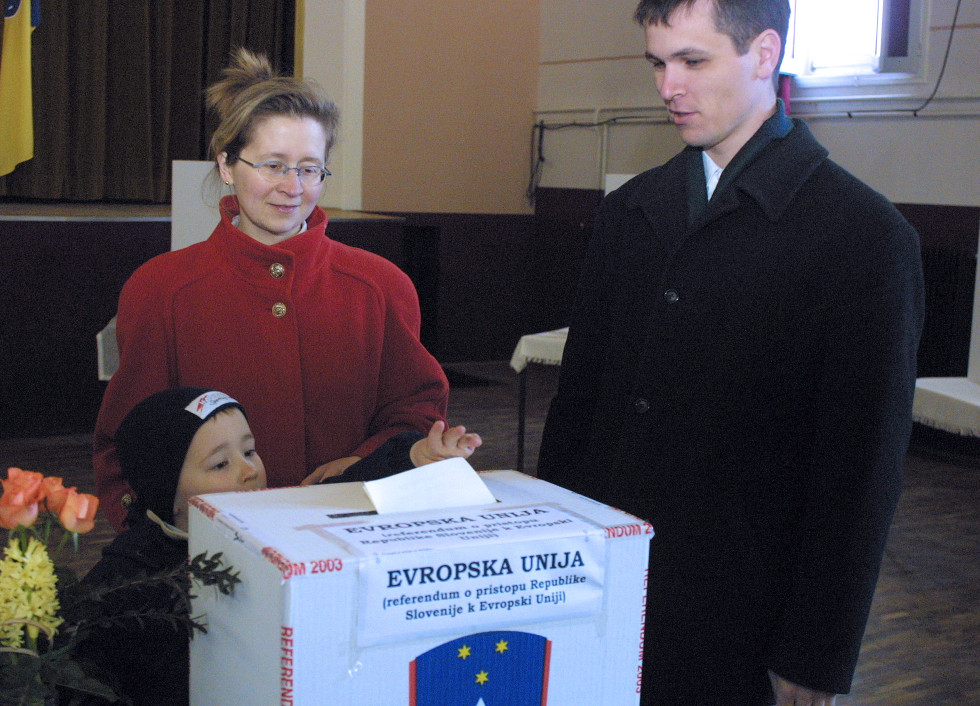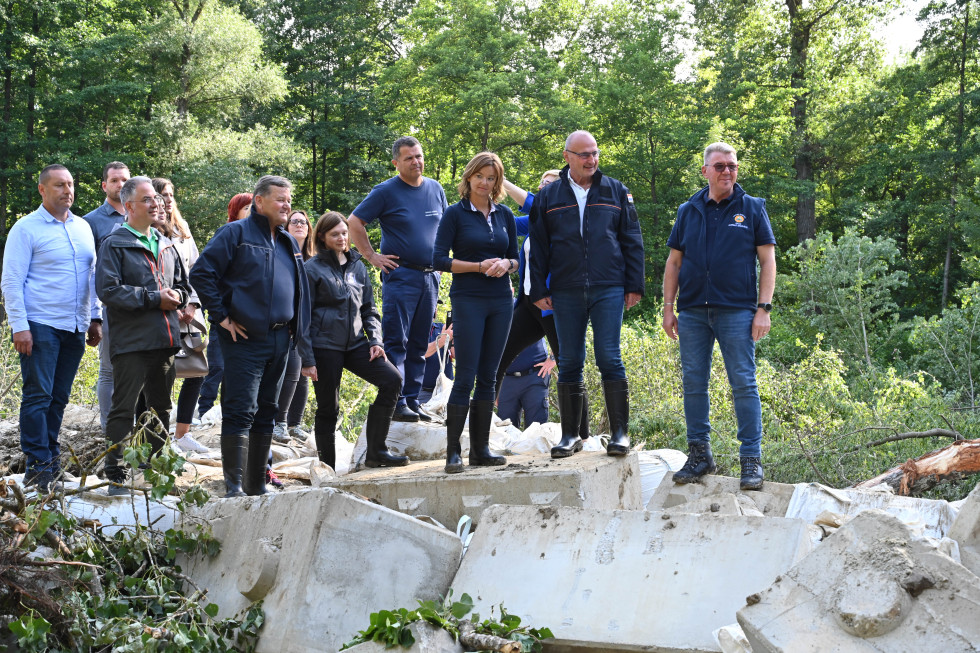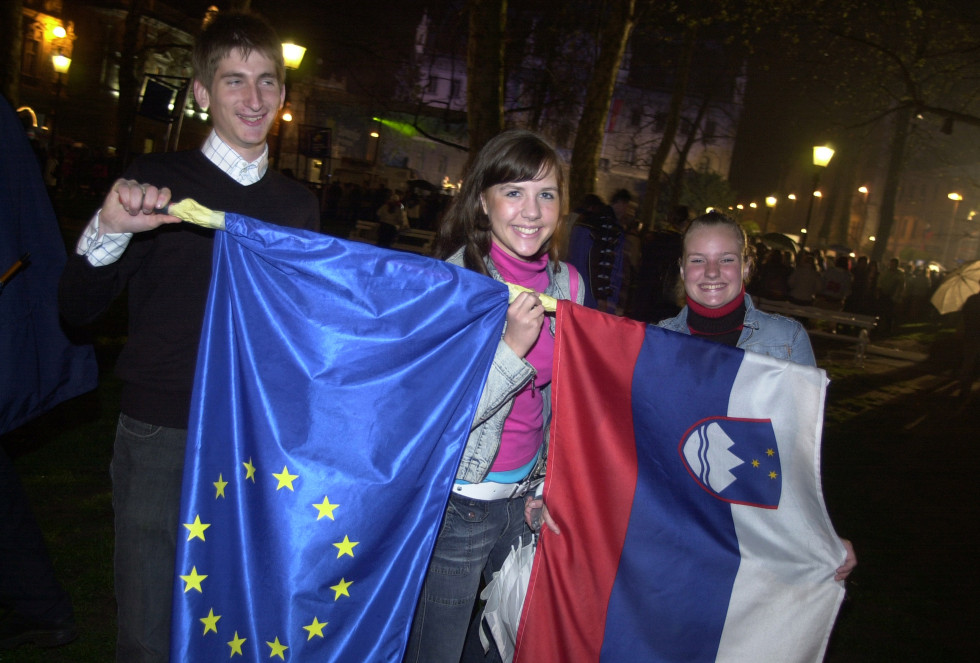Minister Fajon: 'Slovenia has been a champion of peace in 20 years' EU membership’
By becoming a member of the European Union, Slovenia has achieved a significant strategic and foreign policy objective. This step not only provided an opportunity to engage in a thriving and promising economic project centred around one of the world's largest markets but also facilitated integration into a peace project aimed at safeguarding stability and security across the European continent.
On the occasion of the 20th anniversary of Slovenia's EU membership, Minister of Foreign and European Affairs Tanja Fajon said: “In its two decades as a member of the European Union, Slovenia has flourished, strengthened its international connections and became an active co-creator of Europe's future. Its journey is an example of successful integration and cooperation, underpinned by values of respect and solidarity. Over the past twenty years, Slovenia has shown that small countries can play a key role in a large community. Our country has been a voice of reason and an advocate of peace, even amidst the most challenging global scenarios. I believe that in the future, we should work even more closely together in areas of shared importance, especially in promoting science and education, fostering banking and monetary union and enhancing security and defence. As we approach the upcoming elections, we must seize the opportunity to strengthen this commitment, especially with young people, who represent the future of our common Europe.”
Since joining the EU, Slovenia has benefited from numerous incentives and advantages for both the country and its citizens. It has become part of the EU single market, which today gives Slovenian businesses access to around 450 million consumers, stimulates economic growth and creates new jobs. More than 15,000 projects have been carried out in Slovenia through EU funding, elevating living standards and bolstering Slovenia's all-round development. Moreover, EU membership has opened up opportunities for Slovenian citizens to pursue employment and education in other Member States. In 2007, Slovenia further solidified its integration with the EU by adopting the single European currency as the 13th member and joining the Schengen area, which makes it easier for European citizens to travel within the EU.
As an EU member, Slovenia upholds and advances some of the world's highest standards in environmental protection and food and product quality. EU membership empowers Slovenia to actively contribute to shaping common European policies across diverse domains, spanning from foreign policy and security to migration, science and technology, environment and energy. This increases Slovenia's influence on the international stage, ensuring its interests are duly considered in EU decision-making processes and enabling more effective engagement in addressing global challenges such as climate change. Slovenia successfully held the Presidency of the Council of the European Union in the first half of 2008 and the second half of 2021.
Today, Slovenia is part of a community comprising 27 EU Member States that are bound together by economic, social and political ties. In recent years, the EU has faced numerous crises, underscoring the strength of close European cooperation and solidarity. In Slovenia, this solidarity has been particularly evident during crises such as the COVID-19 pandemic, including its economic consequences, mass migration, as well as natural disasters like the ice storm, the Karst fire and the floods of 2023. In the recent floods that affected almost two thirds of the country, the European Commission and the Member States demonstrated remarkable solidarity.
Within the EU, Slovenia has become known for its consistent efforts in some of the areas it has set as priorities. Foremost among these is its role in EU enlargement and engagement with the Western Balkans. Slovenia advocates for EU enlargement as the EU's most powerful geopolitical tool and one of the strongest levers for bolstering political and economic stability and security. We support EU enlargement with the Western Balkans and the Eastern Partnership countries and work for a more efficient EU membership negotiation process.
Slovenia actively supports the EU's efforts in the area of competitiveness and advocates strengthening and enhancing the internal market. It is committed to removing unjustified barriers to the free movement of goods and services in the single market, thereby facilitating business operations, particularly for small and medium-sized enterprises. Ensuring a high level of consumer protection is another priority for Slovenia. All EU businesses, workers and citizens should benefit from free movement in the EU single market.
Slovenia is working to give rural development a more prominent place in the EU's agricultural policy. Sustainable rural development, knowledge and innovation are key to our resilience and to increasing the competitiveness of the agriculture, food and forestry sectors. It is also the key to adequate environmental protection and adaptation to climate change. It will help us to reverse the trend of young people leaving the countryside, the abandonment of agricultural production and other negative trends we see in rural areas.
In democracies, the future is decided by the choices citizens make in elections. This year's European elections, to be held in Slovenia on 9 June 2024, will be a major test of that choice, according to many opinion polls. The Government is also encouraging citizens to vote in the European elections by organising events to mark the 20th anniversary of EU membership. Particular emphasis is being placed on encouraging young people and first-time voters to participate. As part of the Active Citizenship programme, Government representatives visit secondary and grammar schools to present Government’s work as the executive branch of power.





